| Listing 1 - 10 of 265 | << page >> |
Sort by
|
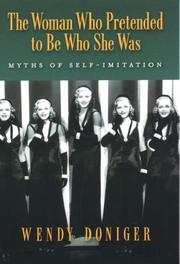
ISBN: 1280560266 1423761634 0195347773 1602568359 9781423761631 0195160169 9780195160161 9781280560262 9781602568358 9780195313116 0195313119 9786610560264 6610560269 Year: 2005 Publisher: Oxford, [England] ; New York, New York : Oxford University Press,
Abstract | Keywords | Export | Availability | Bookmark
 Loading...
Loading...Choose an application
- Reference Manager
- EndNote
- RefWorks (Direct export to RefWorks)
Offers a cross-cultural exploration of the theme of self-impersonation. The stories considered in this book range from ancient Indian literature through medieval European courtly literature and Shakespeare to Hollywood and Bollywood. They describe a human way of negotiating reality, illusion, identity, authenticity, memory, and more.
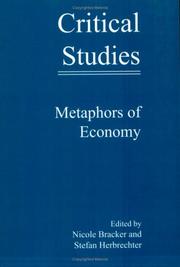
ISBN: 9401201102 1423791460 9042015683 9781423791461 9789401201100 9789042015685 Year: 2005 Publisher: Amsterdam ; New York : Rodopi,
Abstract | Keywords | Export | Availability | Bookmark
 Loading...
Loading...Choose an application
- Reference Manager
- EndNote
- RefWorks (Direct export to RefWorks)
In recent years the metaphor of economy has proved to have an immense explanatory power in literary and cultural criticism. Everything can be expressed and analysed in terms borrowed from political economy. Language, texts, social structures, and cultural relationships can be construed in the dynamic terms made available by the metaphor of economy, and, more specifically, the economy of the metaphor. The metaphor of economy allows to show the dynamic processes of exchange, circulation and interested negotiation. The essays in this volume display approaches to cultural and discursive practices derived from the methods and texts of economics. They provide a body of literary and cultural criticism founded upon economic paradigms, which makes apparent the genealogy of our economic thought and the suggestion that looking at human exchange can enrich our understanding of culture. The interest of this volume is manifold: it gives a historical account of the development of economics, elucidates the emergence of theories governed by economic metaphors and clarifies the impact of the metaphor on theories of textuality. It also provides an exchange between economists and literary and cultural critics by combining literary and cultural criticism with economics and covers a wide range of topics which are of interest to scholars from various disciplines. This volume provides a critical exchange which hopes to enrich both economics and literature.
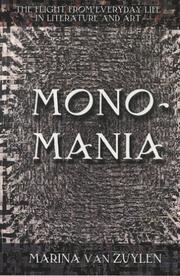
ISBN: 1501717456 9781501717451 0801442982 9780801442988 0801489865 9780801489860 Year: 2005 Publisher: Ithaca
Abstract | Keywords | Export | Availability | Bookmark
 Loading...
Loading...Choose an application
- Reference Manager
- EndNote
- RefWorks (Direct export to RefWorks)
"This book is about the obsessive strategies people use to keep the arbitrary out of their lives; it is about the fanaticism and intolerance linked to their ideas of perfection and permanence.... Those readers who have brushed against the dangers of the idée fixe, who have come close to surrendering to something or someone diabolically seductive or coercive, will recognize in these characters their own encounter with a dangerously systematized world."-From the introduction.Monomania explores the cultural prominence of the idée fixe in Western Europe during the nineteenth and twentieth centuries. Marina van Zuylen revives the term monomania to explore the therapeutic attributes of obsession. She introduces us to artists and collectors, voyeurs and scholars, hypochondriacs and melancholics, whose lives are run by debilitating compulsions that may become powerful weapons against the tyranny of everyday life.In van Zuylen's view, there is a productive tension between disabling fixations and their curative powers; she argues that the idée fixe has acted as a corrective for the multiple disorders of modernity. The authors she studies-Charles Baudelaire, Sophie Calle, Elias Canetti, George Eliot, Gustave Flaubert, and Thomas Mann among them-embody or set in motion different manifestations of this monomaniacal imperative. Their protagonists or alter egos live more intensely, more meaningfully, because of the compulsive pressures they set up for themselves. Monomania shows that transforming life into art, or at least into the artful, drives out the anxiety of the void and puts in its place something so orderly and meaningful that it can take on the aura of a religion.
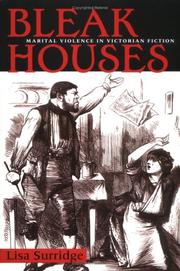
ISBN: 082144199X 9780821441992 0821416421 082141643X 9780821416426 9780821416433 Year: 2005 Publisher: Athens : Ohio University Press,
Abstract | Keywords | Export | Availability | Bookmark
 Loading...
Loading...Choose an application
- Reference Manager
- EndNote
- RefWorks (Direct export to RefWorks)
The Offenses Against the Person Act of 1828 opened magistrates' courts to abused working-class wives. Newspapers in turn reported on these proceedings, and in this way the Victorian scrutiny of domestic conduct began. But how did popular fiction treat "private" family violence? Bleak Houses: Marital Violence in Victorian Fiction traces novelists' engagement with the wife-assault debates in the public press between 1828 and the turn of the century. Lisa Surridge examines the early works of Charles Dickens and reads Dombey and Son and Anne Brontë's The Tenant of Wildfell Hall in the context of
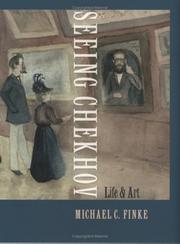
ISBN: 1501721542 9781501721540 0801443156 9780801443152 Year: 2005 Publisher: Ithaca
Abstract | Keywords | Export | Availability | Bookmark
 Loading...
Loading...Choose an application
- Reference Manager
- EndNote
- RefWorks (Direct export to RefWorks)
"Chekhov's keen powers of observation have been remarked by both memoirists who knew him well and scholars who approach him only through the written record and across the distance of many decades. To apprehend Chekhov means seeing how Chekhov sees, and the author's remarkable vision is understood as deriving from his occupational or professional training and identity. But we have failed to register, let alone understand, just what a central concern for Chekhov himself, and how deeply problematic, were precisely issues of seeing and being seen."-from the IntroductionMichael C. Finke explodes a century of critical truisms concerning Chekhov's objective eye and what being a physician gave him as a writer in a book that foregrounds the deeply subjective and self-reflexive aspects of his fiction and drama. In exploring previously unrecognized seams between the author's life and his verbal art, Finke profoundly alters and deepens our understanding of Chekhov's personality and behaviors, provides startling new interpretations of a broad array of Chekhov's texts, and fleshes out Chekhov's simultaneous pride in his identity as a physician and devastating critique of turn-of-the-century medical practices and ideologies. Seeing Chekhov is essential reading for students of Russian literature, devotees of the short story and modern drama, and anyone interested in the intersection of literature, psychology, and medicine.
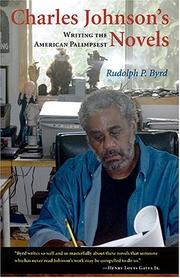
ISBN: 9786612071669 1282071661 025311120X 9780253111203 9780253217912 0253217911 9780253345646 0253345642 0253217911 0253345642 6612071664 9781282071667 Year: 2005 Publisher: Bloomington : Indiana University Press,
Abstract | Keywords | Export | Availability | Bookmark
 Loading...
Loading...Choose an application
- Reference Manager
- EndNote
- RefWorks (Direct export to RefWorks)
""This is truly a major contribution to African American literary criticism, and it promises to elevate Johnson to the place in the literary firmament he so richly deserves."" -- Henry Louis Gates, Jr., Harvard University Charles Johnson came of age during the Black Arts Movement of the 1960's and 1970's. His fiction bears the imprint of his formal training as a philosopher and his work as a journalist and cartoonist with a well-honed interest in political satire. Mentored by the American writer Jo
Liberty in literature. --- Slavery in literature. --- African Americans in literature. --- Freedom in literature --- Liberty as a theme in literature --- Slavery and slaves in literature --- Slaves in literature --- Afro-Americans in literature --- Negroes in literature --- Johnson, Charles Richard, --- Johnson, Charles R. --- Criticism and interpretation. --- Johnson, Charles --- Enslaved persons in literature
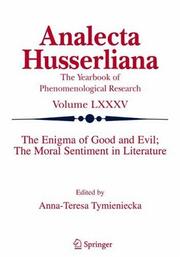
ISBN: 1402035756 9781402035753 1402035764 9781402035760 9786610611355 1429408901 1280611359 Year: 2005 Volume: 85 Publisher: Dordrecht Springer
Abstract | Keywords | Export | Availability | Bookmark
 Loading...
Loading...Choose an application
- Reference Manager
- EndNote
- RefWorks (Direct export to RefWorks)
Striking toward peace and harmony the human being is ceasely torn apart in personal, social, national life by wars, feuds, inequities and intimate personal conflicts for which there seems to be no respite. Does the human condition in interaction with others imply a constant adversity? Or, is this conflict owing to an interior or external factor of evil governing our attitudes and conduct toward the other person? To what criteria should I refer for appreciation, judgment, direction concerning my attitudes and my actions as they bear on the well-being of others? At the roots of these questions lies human experience which ought to be appropriately clarified before entering into speculative abstractions of the ethical theories and precepts. Literature, which in its very gist, dwells upon disentangling in multiple perspective the peripeteia of our life-experience offers us a unique field of source-material for moral and ethical investigations. Literature brings preeminently to light the Moral Sentiment which pervades our life with others -- our existence tout court. Being modulated through the course of our experiences the Moral Sentiment sustains the very sense of literature and of personal human life (Tymieniecka).
Good and evil in literature --- Phenomenology in literature --- Literature and morals --- Ethics in literature --- Literature --- Philosophy --- Good and evil in literature - Congresses. --- Phenomenology in literature - Congresses. --- Literature and morals - Congresses. --- Ethics in literature - Congresses. --- Literature - Philosophy - Congresses.
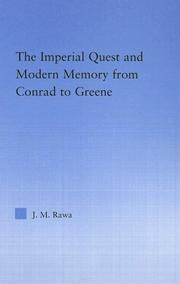
ISBN: 1135494320 1135494398 0203959388 9781135494322 9780203959381 0415975522 9780415975520 9781135494391 9781135494469 9780415867238 0415867231 Year: 2005 Publisher: New York, NY
Abstract | Keywords | Export | Availability | Bookmark
 Loading...
Loading...Choose an application
- Reference Manager
- EndNote
- RefWorks (Direct export to RefWorks)
First Published in 2005. Routledge is an imprint of Taylor & Francis, an informa company.
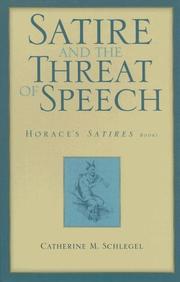
ISBN: 0299209504 9780299209506 9786612269837 1282269836 0299209539 9780299209537 9781282269835 6612269839 Year: 2005 Publisher: Madison : University of Wisconsin Press,
Abstract | Keywords | Export | Availability | Bookmark
 Loading...
Loading...Choose an application
- Reference Manager
- EndNote
- RefWorks (Direct export to RefWorks)
In his first book of 'Satires', written in the late, violent days of the Roman republic, Horace exposes satiric speech as a tool of power and domination. Using critical theories from classics, speech act theory, and others, Catherine Schlegel argues that Horace's acute poetic observation of hostile speech provides insights into the operations of verbal control that are relevant to his time and to ours. She demonstrates that though Horace is forced by his political circumstances to develop a new, unthreatening style of satire, his poems contain a challenge to our most profound habits of violence, hierarchy, and domination. Focusing on the relationships between speaker and audience and between old and new style, Schlegel examines the internal conflicts of a notoriously difficult text. This exciting contribution to the field of Horatian studies will be of interest to classicists as well as other scholars interested in the genre of satire.
Speech in literature. --- Verse satire, Latin --- History and criticism. --- Horace. --- Rome --- In literature. --- Speech in literature --- History and criticism
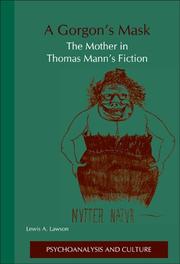
ISBN: 9042017457 940120182X 1417591196 9781417591190 9789401201827 9789042017450 Year: 2005 Publisher: Leiden; Boston : BRILL,
Abstract | Keywords | Export | Availability | Bookmark
 Loading...
Loading...Choose an application
- Reference Manager
- EndNote
- RefWorks (Direct export to RefWorks)
The thesis of A Gorgon's mask: The Mother in Thomas Mann's Fiction depends upon three psychoanalytic concepts: Freud's early work on the relationship between the infant and its mother and on the psychology of artistic creation, Annie Reich's analysis of the grotesque-comic sublimation, and Edmund Bergler's analysis of writer's block. Mann's crisis of sexual anxiety in late adolescence is presented as the defining moment for his entire artistic life. In the throes of that crisis he included a sketch of a female as Gorgon in a book that would not escape his mother's notice. But to defend himself from being overcome by the Gorgon-mother's stare he employed the grotesque-comic sublimation, hiding the mother figure behind fictional characters physically attractive but psychologically repellent, all the while couching his fiction in an ironic tone that evoked humor, however lacking in humor the subtext might be. In this manner he could deny to himself that the mother figure always lurked in his work, and by that denial deny that he was a victim of oral regression. For, as Edmund Bergler argues, the creative writer who acknowledges his oral dependency will inevitably succumb to writer's block. Mann's late work reveals that his defense against the Gorgon is crumbling. In Doctor Faustus Mann portrays Adrian Leverkühn as, ultimately, the victim of oral regression; but the fact that Mann was able to compete the novel, despite severe physical illness and psychological distress, demonstrates that he himself was still holding writer's block at bay. In Confessions of Felix Krull: Confidence Man, a narrative that he had abandoned forty years before, Mann was finally forced to acknowledge that he was depleted of creative vitality, but not of his capacity for irony, brilliantly couching the victorious return of the repressed in ambiguity. This study will be of interest to general readers who enjoy Mann's narrative art, to students of Mann's work, especially its psychological and mythological aspects, and to students of the psychology of artistic creativity.
Psychological study of literature --- Mann, Thomas --- Medicine in Literature. --- Mothers in literature. --- Mothers --- Medical care in literature --- psychology.
| Listing 1 - 10 of 265 | << page >> |
Sort by
|

 Search
Search Feedback
Feedback About
About Help
Help News
News